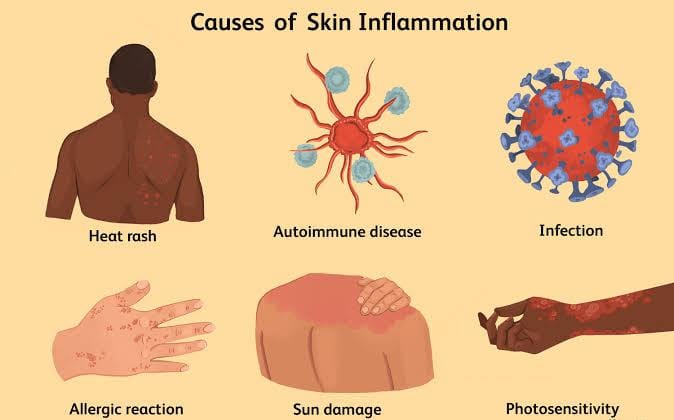Understanding Inflammation: Causes, Management, and the Role of Physiotherapy

Inflammation is a natural defense mechanism of the body that plays a critical role in healing and protecting against harmful stimuli like infections, injuries, or toxins. However, when inflammation becomes chronic or unmanaged, it can lead to debilitating conditions and affect overall health. In this blog, we’ll dive deep into the causes of inflammation, explore effective management strategies, and highlight the crucial role physiotherapy plays in its treatment
What Is Inflammation?
Inflammation is the body’s immune response to injury or infection. It’s a complex biological process characterized by redness, heat, swelling, pain, and loss of function. While acute inflammation is essential for healing, chronic inflammation can persist over time and contribute to conditions such as arthritis, cardiovascular diseases, and even certain cancers.
Types of Inflammation
1. Acute Inflammation: Short-term and usually beneficial, it occurs immediately after an injury or infection, helping the body to heal.
2. Chronic Inflammation: Long-lasting and often harmful, this type occurs when the immune system remains active for prolonged periods, even without a direct threat
Common Causes of Inflammation
Injuries: Sprains, fractures, or muscle tears.
Infections: Bacterial, viral, or fungal infections.
Lifestyle Factors: Poor diet, lack of exercise, smoking, and excessive alcohol consumption.
Chronic Conditions: Autoimmune diseases like rheumatoid arthritis or systemic lupus erythematosus.
Environmental Factors: Exposure to toxins or allergens.
Management of Inflammation
Effectively managing inflammation requires a combination of medical treatment, lifestyle modifications, and supportive therapies.
1. Medications
Non-steroidal anti-inflammatory drugs (NSAIDs) like ibuprofen and aspirin.
Corticosteroids for more severe cases.
2. Dietary Interventions
Incorporating anti-inflammatory foods such as fatty fish, nuts, berries, and leafy greens.
Avoiding processed foods, sugar, and trans fats that can exacerbate inflammation.
3. Lifestyle Changes
Regular exercise to improve circulation and reduce inflammation.
Stress management techniques such as yoga, meditation, or mindfulness.
4. Natural Remedies
Herbal supplements like turmeric (curcumin), ginger, and green tea have natural anti-inflammatory properties.
Role of Physiotherapy in Managing Inflammation
Physiotherapy plays a pivotal role in managing both acute and chronic inflammation, especially when it affects musculoskeletal structures. Here's how:
1. Pain Reduction
Physiotherapists use modalities like ultrasound, TENS (Transcutaneous Electrical Nerve Stimulation), and cold therapy to reduce inflammation and alleviate pain.
2. Restoring Mobility
Inflammation can lead to stiffness and restricted movement. Techniques like manual therapy, joint mobilizations, and specific stretching exercises help restore range of motion.
3. Strengthening Muscles
Weak muscles around inflamed areas can worsen symptoms. A tailored strengthening program can stabilize joints and reduce the load on inflamed tissues.
4. Improving Circulation
Techniques like massage therapy and aerobic exercises improve blood flow, promoting healing and reducing inflammation.
5. Educating Patients
Physiotherapists provide guidance on posture, ergonomics, and activity modifications to prevent flare-ups and support long-term management.
When to Seek Physiotherapy?
If you experience prolonged pain, swelling, or stiffness that affects your daily activities, consulting a physiotherapist is essential. Early intervention can prevent the progression of chronic inflammation and its associated complications.
Key Takeaways
Inflammation is a double-edged sword: essential for healing but harmful when chronic.
Effective management includes medications, a healthy diet, lifestyle changes, and natural remedies.
Physiotherapy offers non-invasive, evidence-based solutions to reduce inflammation, improve mobility, and enhance quality of life.
Physiotherapy is not just a treatment; it’s a path to reclaiming your strength, mobility, and well-being.
For more insights and expert guidance on managing inflammation, contact Handle With Ease Physiotherapy and Rehabilitation Centre. Together, we’ll work towards genuine health and healing.
Recommended Articles
Enhancing Mobility: Physiotherapy Strategies for Managing Neurological Disorders in Geriatric
In the realm of geriatric healthcare, physiotherapy emerges as a vital tool in managing the complexities of neurological disorders. As aging brings about natural changes in mobility and function, understanding how physiotherapy can address the unique needs of older adults is essential for optimizing their quality of life. Join us as we explore the role of physiotherapy in managing neurological disorders in geriatric patients, uncovering strategies for enhancing mobility, function, and overall well-being.
Read More
The Case for Whole Fruits Over Fruit Juice
In the realm of nutrition, the debate between whole fruits and fruit juice often arises. While both offer essential vitamins and minerals, there are compelling reasons why consuming whole fruits is generally preferred over their juice counterparts.
Here are several key points to consider:
Read More
Handle With Ease: Your New Destination for Physiotherapy and Rehab Care in Lucknow
We are thrilled to announce the grand opening of "Handle With Ease - Physiotherapy & Rehab Care" in Lucknow, U.P.! Our clinic is committed to providing personalized care for individuals recovering from injuries, managing chronic pain, or seeking to improve their mobility. At Handle With Ease, we prioritize a smooth and efficient recovery process that is tailored to your unique needs.
Read More




